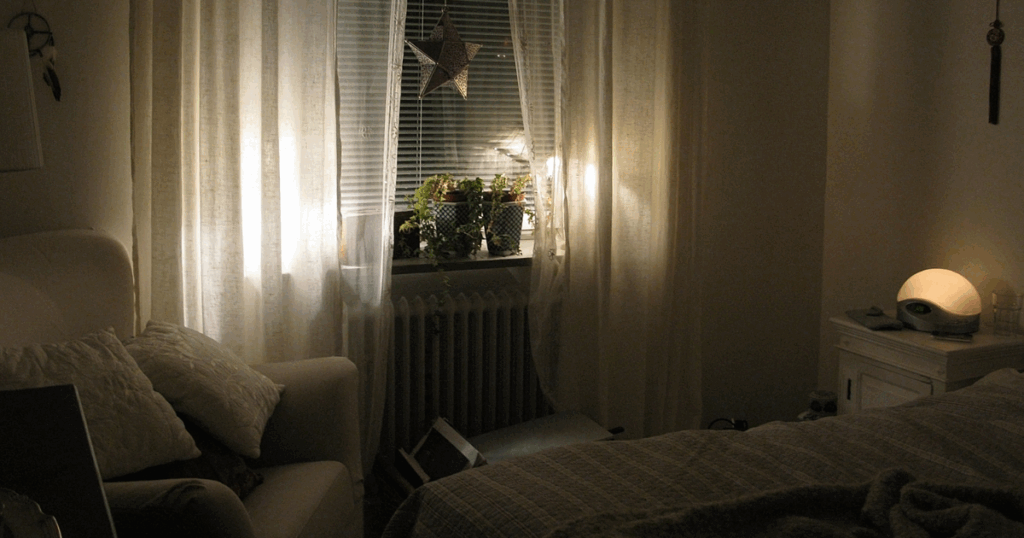The Science Behind Sleep and Hormonal Health
Sleep isn’t just rest—it’s restoration. While you sleep, your body detoxifies, repairs tissues, regulates blood sugar, and balances hormones like cortisol, insulin, and melatonin.
After 40, these processes become more delicate. Fluctuations in estrogen and progesterone can disrupt sleep cycles, making it harder to fall or stay asleep. When sleep is off, everything else—energy, mood, weight—can follow.
As a family nurse practitioner, I’ve found that creating a simple, calming evening routine can make a powerful difference in sleep quality and midlife wellness.
How Poor Sleep Impacts Weight, Mood, and Metabolism
When you don’t sleep well:
- Cortisol stays elevated, triggering fat storage (especially in the belly)
- Ghrelin (hunger hormone) increases, while leptin (fullness hormone) decreases
- Blood sugar becomes harder to manage
- Cravings for sugar and processed carbs increase
- Mood swings, anxiety, and fatigue become more common
Quality sleep is one of the most underutilized weight loss and wellness tools for women over 40.
What an Ideal Evening Routine Looks Like After 40
The goal isn’t perfection—it’s rhythm. Your evening routine should help you:
- Wind down your nervous system
- Stabilize blood sugar before bed
- Signal to your brain that it’s safe to rest
Here’s a sample framework: 6:00–7:00 PM — Eat a light, balanced dinner (protein + veggies + healthy fat) 7:30 PM — Start dimming lights and reducing screen time 8:00 PM — Sip herbal tea, stretch, or read a book 8:30–9:30 PM — Begin a calming ritual (bath, journaling, breathwork) 9:30–10:00 PM — In bed with no screens; lights out by 10 PM if possible
Calming Habits to Try Tonight for Better Sleep
Add one or two of these to your evening to support deeper rest:
1. Magnesium-rich bath or supplement
Eases muscle tension, supports melatonin production, and calms the mind.
2. Blue light blockers or screen curfew
Screens suppress melatonin. Try blue light glasses or put your phone down an hour before bed.
3. 5-minute breathwork or meditation
Box breathing (4 in, 4 hold, 6 out) helps quiet the mind and activate your parasympathetic nervous system.
4. Sleepytime tea or warm golden milk
Chamomile, lemon balm, or lavender teas are relaxing. Golden milk (turmeric + plant milk + cinnamon) supports inflammation and sleep.
5. Evening journaling
Write down 3 things you’re grateful for or one thing you want to let go of from your day.
Tips for Falling Asleep Faster and Staying Asleep Longer
If sleep is elusive, try these gentle strategies:
- Keep your room dark, cool (65–68°F), and quiet
- Use white noise or calming sleep sounds
- Avoid alcohol and heavy meals close to bedtime
- Try a consistent wake/sleep schedule—even on weekends
- Limit naps to 20 minutes or less
🩺 If you regularly wake between 2–4 AM, you may be experiencing a cortisol spike or blood sugar drop. A small bedtime snack with protein + fat (e.g., almond butter on apple slices) may help.
Final Thoughts from Me to You
Sleep is sacred. It’s the reset button your body and mind desperately need. After 40, honoring your evening routine can transform your health from the inside out.
You don’t need to earn rest. You just need to receive it.
Start small. Turn off the TV 15 minutes earlier. Light a candle. Breathe deeply. Let your body know: It’s safe. You’re supported. It’s time to let go.

